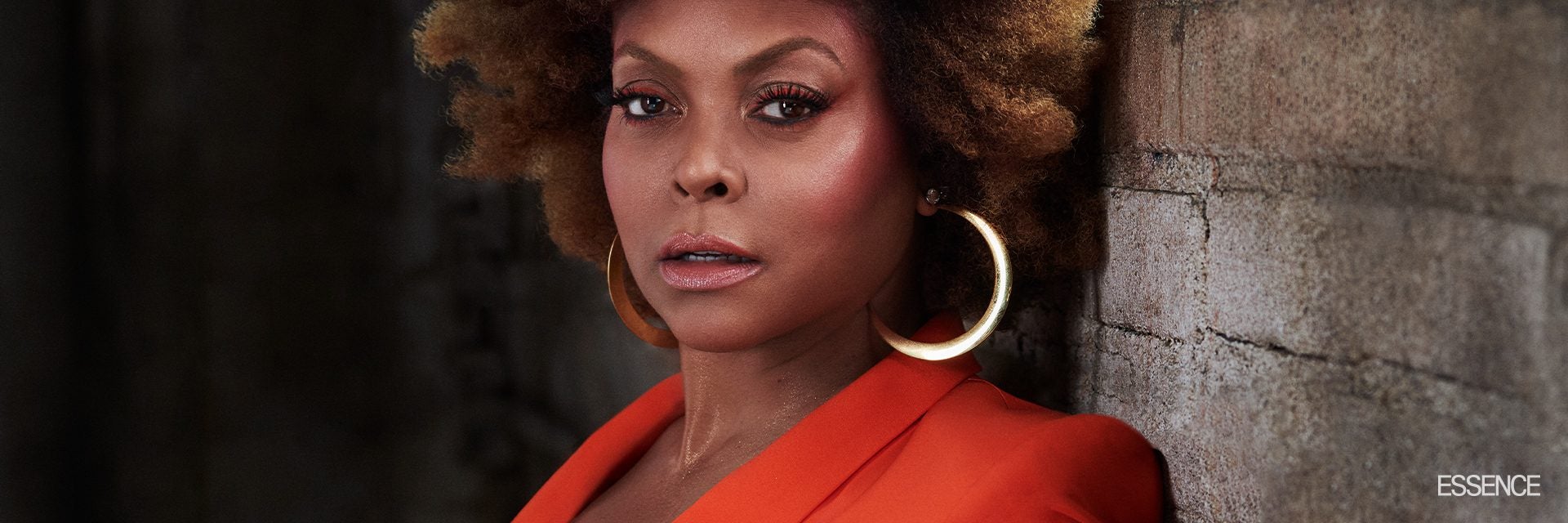Taraji P. Henson is standing in a season of abundance, shining as bright as the marquees on which we’ve seen her name for more than two decades. And then there’s her inner glow, which the Golden Globe Award–winning actress laughingly attributes to a mostly vegan diet and probiotics. But we know better—especially after eyeing her beautiful engagement ring up close. (Don’t worry; we’ll get to that later.)
More recently, Henson has also been focusing her star power on countering mental health stigma among Black Americans. This past June she returned to her hometown of Washington, D.C., where she testified before Congress during a Congressional Black Caucus Emergency Taskforce on Black Youth Suicide and Mental Health. She was there to speak on behalf of her Boris Lawrence Henson Foundation, named for her late father, and her mission was personal. “In the African-American community, we don’t deal with mental health issues. We’ve been taught to pray our problems away,” she noted. “I’m here using my celebrity, using my voice, to put a face to this, because I also suffer from depression and anxiety, and if you’re a human living in today’s world, I don’t know how you’re not suffering in any way.”
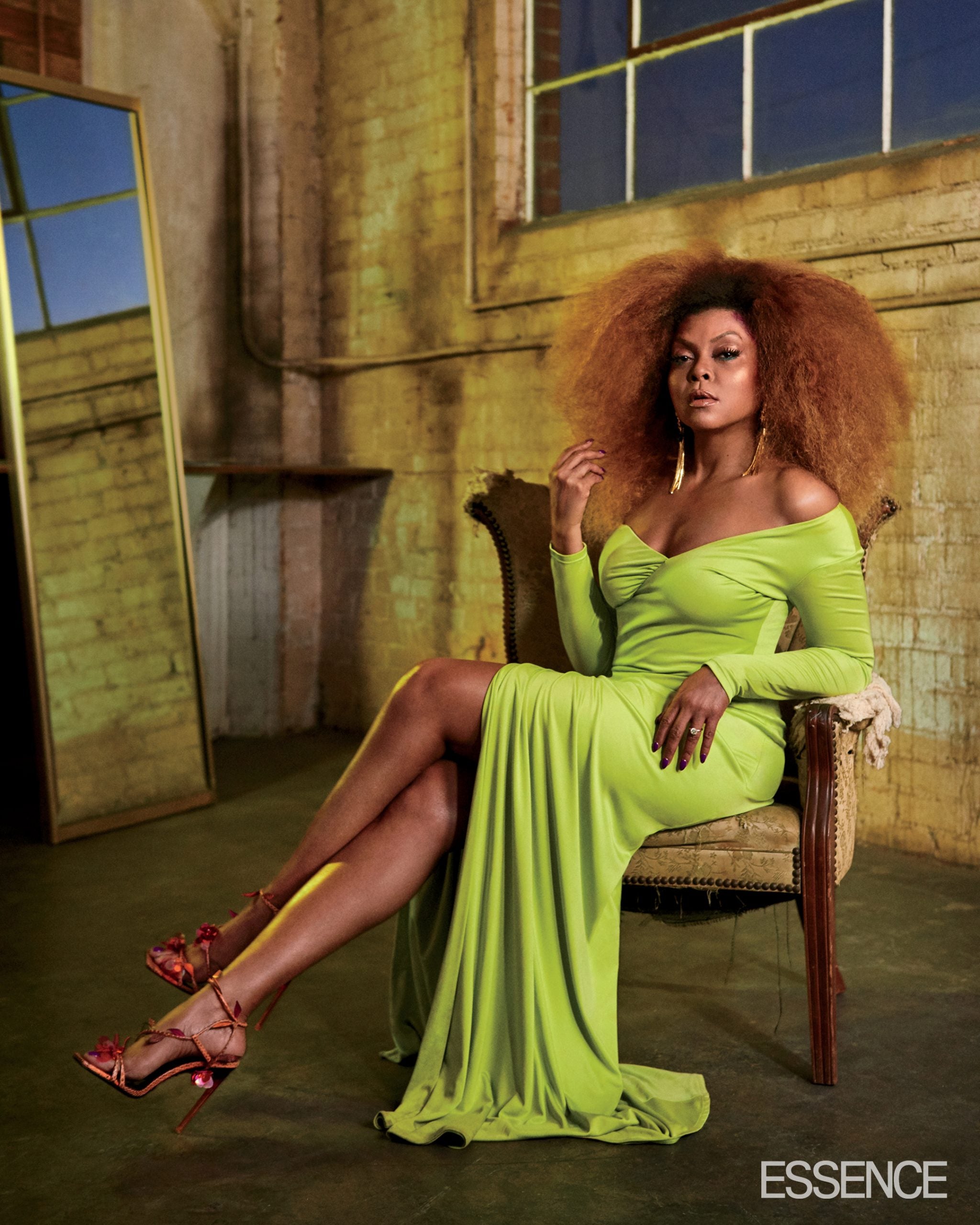
Fortunately, Henson has found light in the darkness. At 49 she’s a blushing first-time bride-to-be, set to walk down the aisle this summer with the love of her life, fiancé Kelvin Hayden. Not only is she busy planning her dream wedding, but somehow one of the hardest-working women in the industry also found time to launch a natural hair care line for women, TPH by Taraji.
I feel like I found my life’s purpose, talking about mental health. I was trying to find it through acting, but then people get caught up in the celebrity. This is real, this is straight to the chase.
This is me.”
TARAJI P. HENSON
ESSENCE Yes, Girl! podcast cohosts Charli Penn and Cori Murray visited Henson in Los Angeles, where the actress and entrepreneur gave the backstory on her new venture, explained why she’ll never stop advocating for our mental health and shared how she plans to continue living with gratitude. Here’s an excerpt of that conversation.
CHARLI PENN: Welcome back, Taraji. The last time we all spoke, you were our guest on an episode of our podcast we taped in Montego Bay, Jamaica. That was an epic conversation. We have so much fun with you.
TARAJI P. HENSON: That was a great backdrop, ladies. We talked about a lot.
CORI MURRAY: We went through your Hollywood receipts and met your then boyfriend, Kelvin.
A lot has happened since then, because now you’re engaged.
HENSON: Right. I was all on hush because I had to make sure it was forever, honey. [Laughs] We plan to get married this summer. He can’t wait. He’s like, “I want my ring.”
MURRAY: We can’t wait.
HENSON: I’ve waited my whole life for this moment. It’s not going to be a big show. It’s going to be really small. I’m not going to have a bridal party either. Nice and simple.
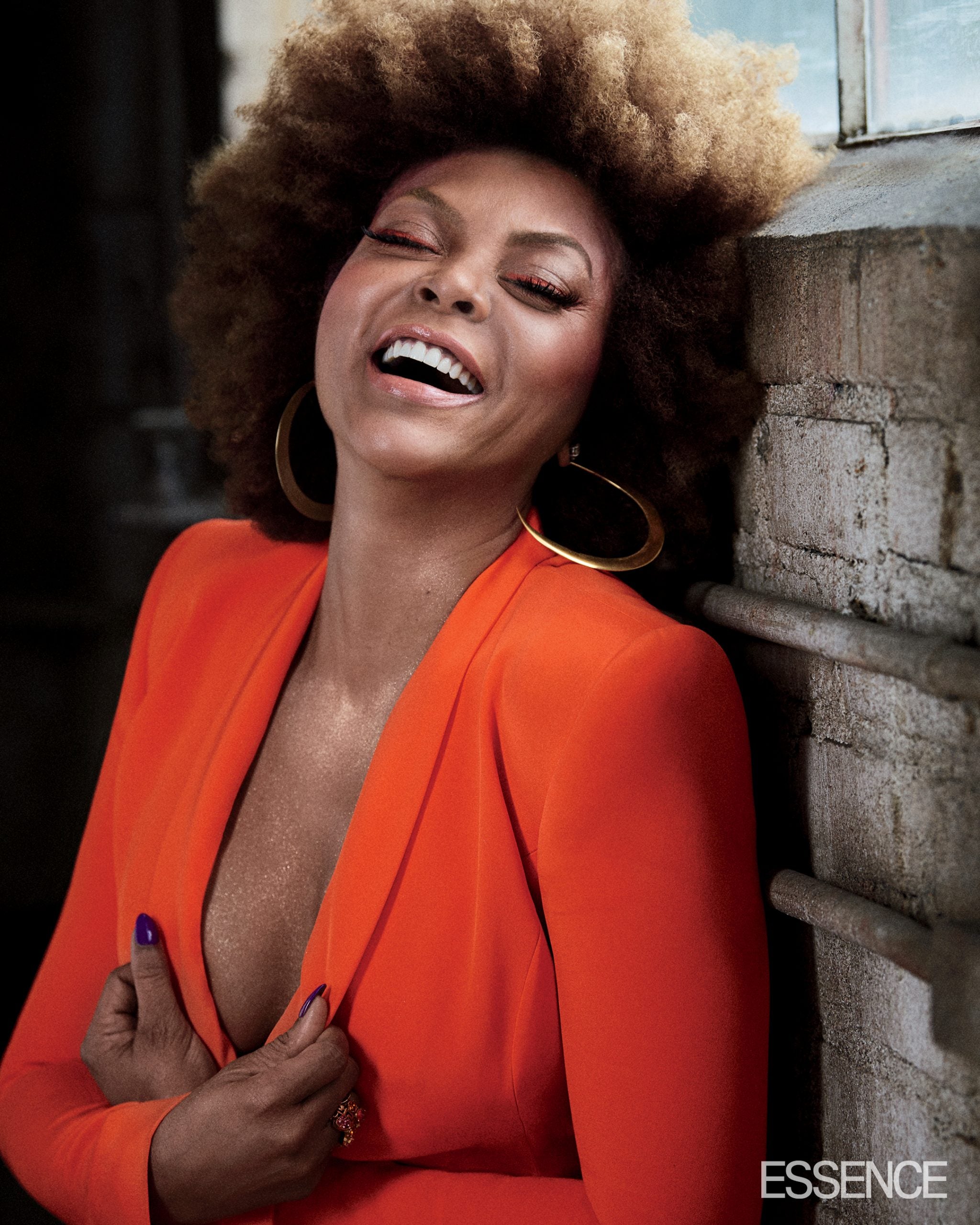
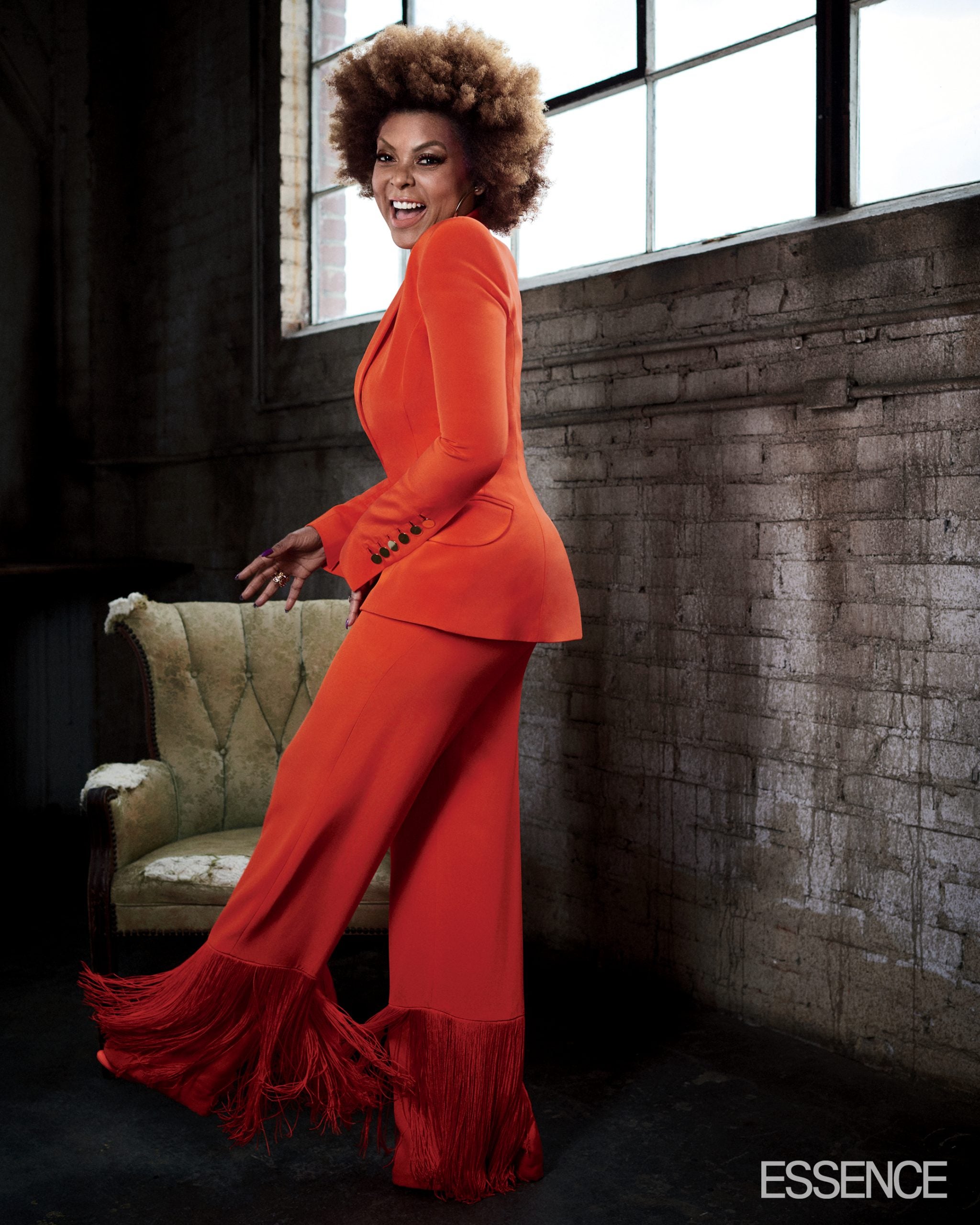
MURRAY: That’s not the only big thing that’s happening for you in 2020. You just launched a hair care line.
HENSON: It’s something I’ve been working on since I started wearing a weave back in the 1990’s. I’m from D.C. We were very serious about our hair—I used to do $20 roller sets in college. That was my McDonald’s money—and I’ve found a solution to a real problem. When I first started getting weaves, I loved my hair, but I just wanted to preserve it because I heard these stories about people losing their edges and your hair thinning out from being in the industry. Also because I have very dense hair, and I was like, Okay, so now I have a problem because I can wash the weave really well and that’ll be clean, but how do I penetrate the weft and get down to the scalp? I know that a lot of women think that just because they have an install that their hair is protected and it’s healthy. You have to clean your scalp first but think about it. If you had dense hair and it’s a scalp product that you’re using, by the time it gets to your root—because I turn into a Chia Pet when my hair gets wet—it’s harder to get to the scalp. So that’s where the tri touch applicator we developed for my line comes in. That’s when I said, “Wow, this is going to be great, not only for people who have installs but also for people who have really thick, dense hair, like the 4C curly girls.”
MURRAY: That makes so much sense.
HENSON: Often you have so many products and you just don’t know how to use them. But because I formulated these myself, I can tell you exactly what to do, how to use them, when to use them and what I do for my hair, because that’s what I was finding—people started taking to my hair. When I would take the weaves out and show my hair, they were like, “Oh, my God. How did you do it? How did you do it?” It would have been so hard for me to try to explain. I went on vacation with girlfriends and they had protective styles and were complaining about their scalps itching. I said, “Try this.” I put the apparatus all together. They were like, “Oh, my God. I’ve never felt this.” I was like, “I’m onto something.”
MURRAY: Was this your first shot at entrepreneurship?
HENSON: Before I booked Baby Boy, I took a community college class on how to make candles, and I turned it into a business. It was called Light My Fire, and I would make candles for my friends who were lucky enough to be booked on television shows. Paula Jai Parker—if you’re out there, girl—I love you, because she was my first client. She bought like $500 worth of candles because she gave them as gifts to her cast and crew. And, girl, I love you, honey. Do you know that paid my rent that month that year? [Laughs] And it was Christmas and my baby had gifts under the tree.
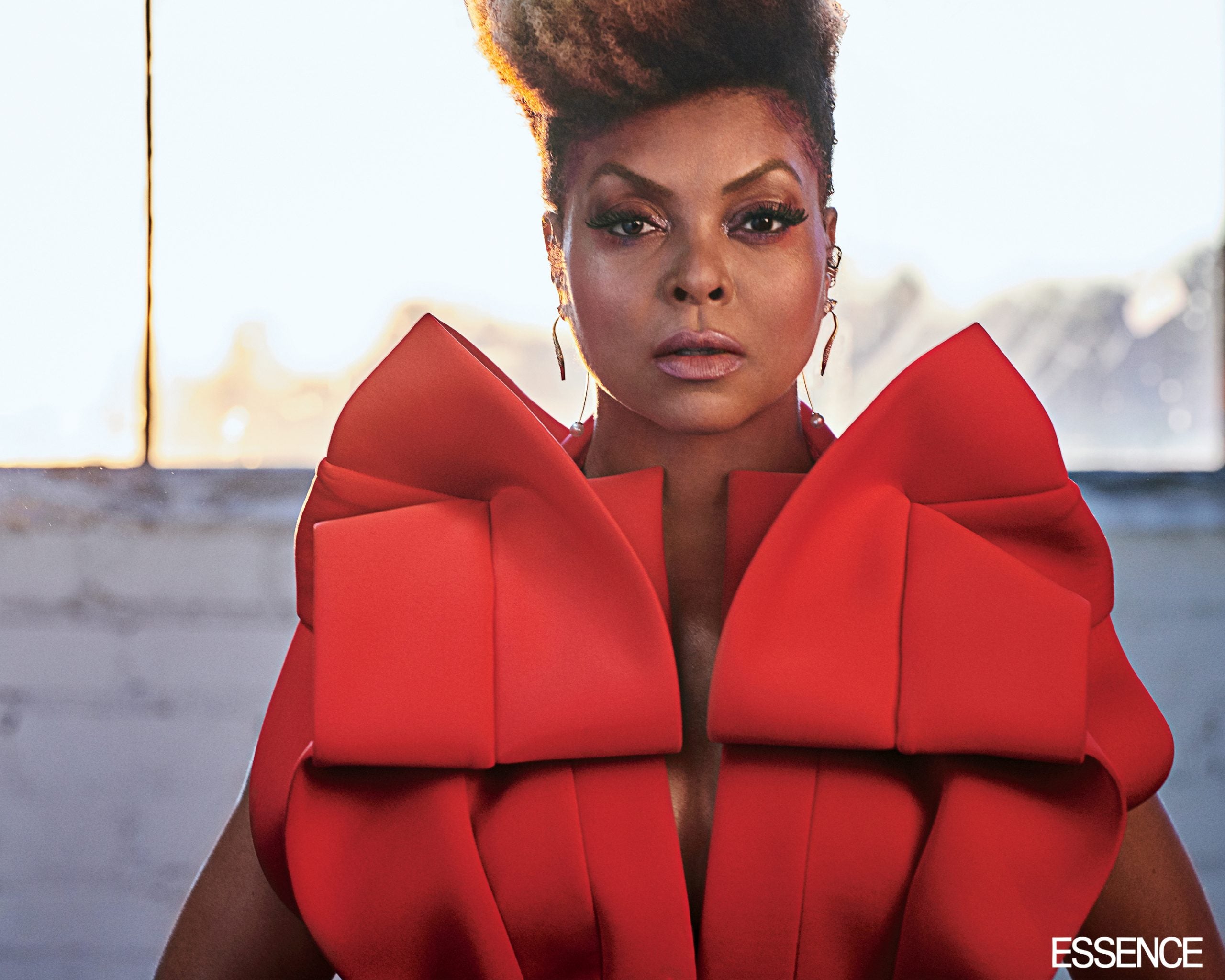
PENN: You always find a way to have a good time.
HENSON: I do. It’s getting harder nowadays. Look at where we are. It doesn’t help my anxiety and depression. It’s a struggle. It’s like after a certain age, the rose-colored glasses come off. And this is the thing I want to really, really discuss and tackle. Women, I know we all are enamored and we’re in love with how Black don’t crack, and we all love the youthfulness, and yes, I’m pushing 50 and we that bitch and all of that. Yes, that’s great, but let’s be real. There are things that happen to us physically and we get so caught up in the aesthetics that we really never talk about perimenopause, menopause. And how that directly affects you mentally. Depression, lows and you not knowing where this s–t is coming from. Yes, we look good, but I had to say something.
MURRAY: Not even like a cursory, “Oh yeah, I have my problems. I have my days.” You’re right. We need to really delve deep into depression.
Continue reading this interview inside the March/April 2020 issue of ESSENCE, available on newsstands Tuesday.
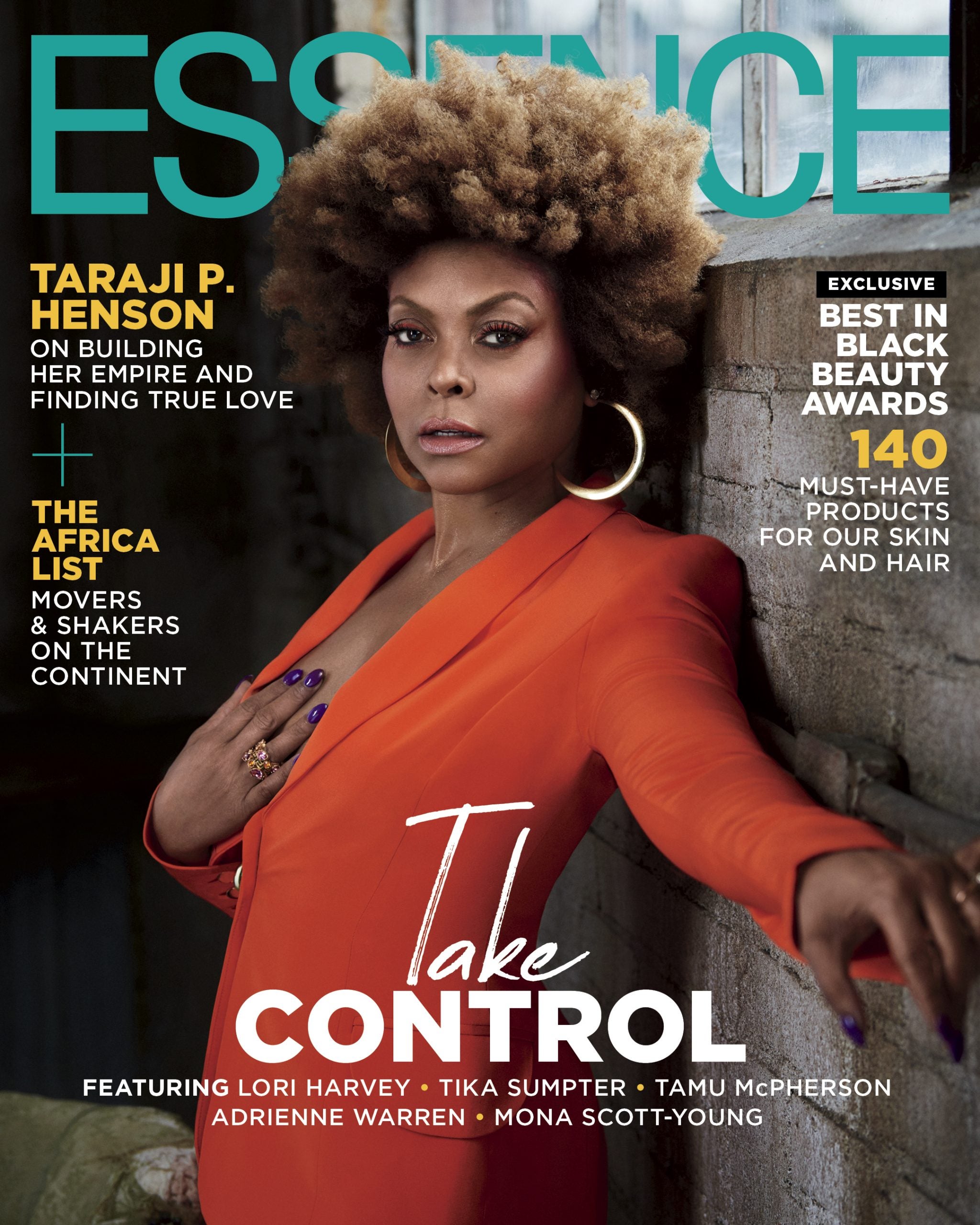
Cori Murray and Charli Penn are the hosts of ESSENCE’s Webby-nominated podcast, Yes, Girl! and editorial directors at ESSENCE
Chief Content & Creative Officer: @Moanaluu
Cover Star: @tarajiphenson
Written By: @charlipenn and @corimurray
Photographer: @kwakualston
Fashion Director: @mariellebobo
Beauty Director: @missjulee
Wearing: @SergioHudson #Lilou earrings, @Versace ring
Hair: @tymwallacehair
Makeup: @ashuntasheriff
Manicure: @merricures
Creative Director: @nialawrence_nyc
Produced By: @nataliegialluca and @photostills
